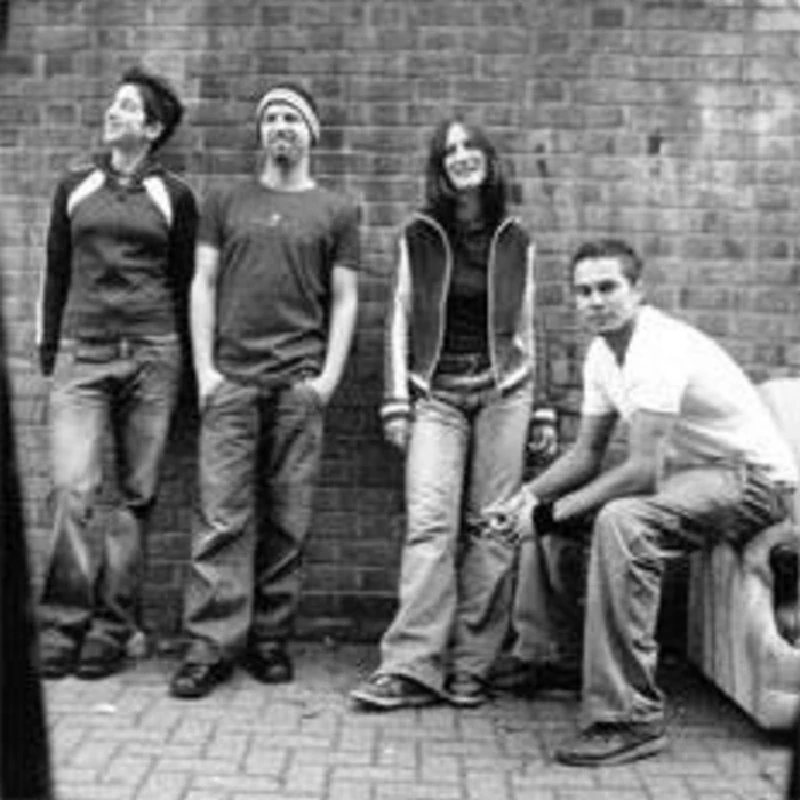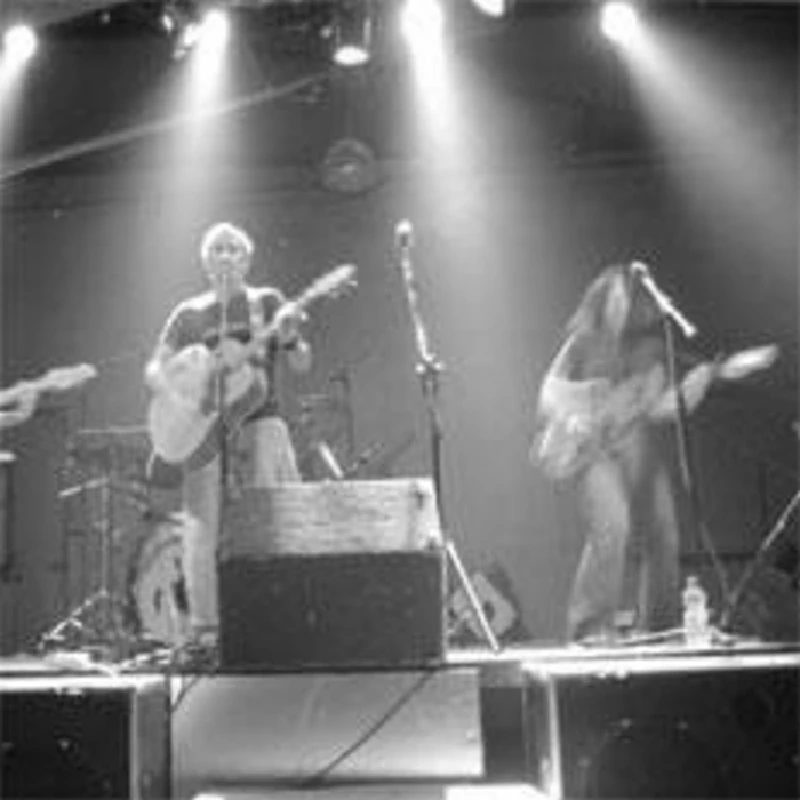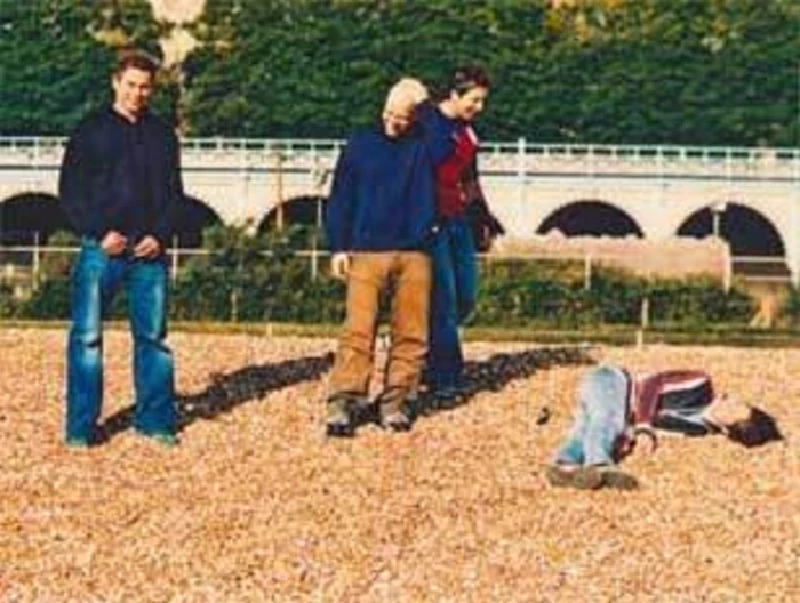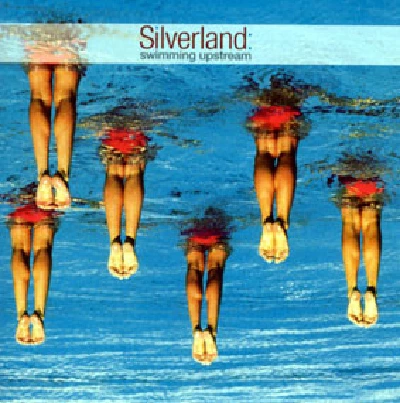Silverland - Interview
by John Clarkson
published: 5 / 1 / 2005

intro
London indie guitar band Silverland have just released their debut album, 'the epic-sounding Swimming Upstream.' Frontman Sam Jones talks to John Clarkson about the band's first two years and its making
Silverland are a four piece indie guitar band from London, who first formed in 2002 and who released both their debut album, ‘Swimming Upstream’, and first single, ‘Atlantis’, in November. Three of the group’s members, Hadas “Dassi” Trainin (guitars, keyboards, percussion, programming), Dorit Braha (bass) and Ami Rothenberg (drums, backing vocals), come originally from Tel Aviv. The band first came together when Dassi Trainin invited Rothenberg to play on her first studio production and Braha, who works as a studio engineer, to record it. The results of the session were so successful that the Israeli trio decided to form a band. Shortly afterwards they recruited Sam Jones (vocals) into the line-up. 'Swimming Upstream’ and ‘Atlantis’ were both recorded at the band’s home studio, with Trainin producing and Braha recording and mixing. Silverland have performed over a hundred gigs, and have earned a reputation for their powerful, gritty live performances. Their sound is similarly potent, merging subtle acoustics with distorted electric guitars and flamboyant vocals from Jones. They recall both Radiohead and U2 with their steely passion and sense of epicness. Pennyblackmusic spoke to Sam Jones both about ‘Swimming Upstream’ and its recording. PB : Why did you decide to call your album ‘Swimming Upstream’ ? SJ : ‘Swimming Upstream’ is really the place where we are at the moment. We are literally at the bottom and we are on a very long journey up. That is the reason why we chose that name. We had eight or nine different options of sleeves to choose from for the album and it also ties in with the one we finally chose of a group of synchronised swimmers which has been flipped around. PB : The band was originally formed by Dorit, Ami and Dassi. At what point did you join the band ? SJ : I joined two years ago last May. I had moved to London for music purposes and had had the odd meeting with various songwriters, but nothing had really come of it. I had literally decided I was going to finish with music when I saw an ad in a newspaper advertising for a front man and decided to go for it. I was pretty nervous when I got there. I had no idea what to expect and equally nor did they. It was all good fun though. I did a rather splendid rendition of U2’s ‘One’ (Laughs) and it went down well and that was it and I was in the band. PB : How much experience did you have of playing music before that ? SJ : Not a great deal ! My Mum taught me to play the guitar when i was quite young, but I never really took it seriously. I went travelling to Australia, and when I got there I met up with a couple of lads from London who had a guitar with them. We got together and started both singing cover songs and writing together. We played in a couple of bars locally just around Bondi and at parties and it went from there. I left Australia thinking that it was the only thing that I wanted to do. PB ‘Swimming Upstream’ was recorded in the band’s home studio. What do you see as the advantages of recording at home ? SJ : You’ve got more time. That is obviously the main thing. There’s not quite that pressure. We have actually just been into the studio to re-record as our next single one of the album tracks ‘April Mourning’. To do the recording we went to the Town House studio in London. It was absolutely brilliant. It went really smoothly. As far as an album goes though you’ve got to give it time. You’re not necessarily going to get everything in the first take. We had all the time in the world which was really good. PB : What then do you see as the disadvantages of recording at home ? SJ : Quality I think. We are very pleased with the sound we have on the album , but I think that we can all admit to things could have been better done still. When we went to the Town House we realised that there was a big difference in sound quality. That’s the main disadvantage. PB : How does the band write its songs ? SJ : Dassi and I do the majority of the writing out of the four of us. We all co-wrote though ‘Choke’, one of the songs on the album. I tend to take most of my ideas from personal things that have happened in the past. I usually try to write some lyrics and then to put some chords on it . For every good song I write , there’s usually about 25 bad ones (Laughs). PB : The album is dedicated to the memory of William Brown, who also wrote and put lyrics on four of the songs. Who was he and what happened to him ? SJ : Will and Dassi began to work together a long time ago. They wrote some stuff together and played the odd open mic slot and then he passed away. I never actually met him. He went to a singing lesson and died suddenly during it. The autopsy put it down an unknown cause. While we brought a lot of other material to the album, Dassi and Will had written some very strong songs and we didn’t want to lose those, so, with his family’s approval, we put them on. PB : How easy was it for you to interpret his songs ? SJ : It was quite hard for me because I was aware of how close Dassi had been to Will, and, to put my vocal on it instead of his, felt quite awkward at the beginning. It was definitely something of a challenge to begin with. Everyone has their own idea of what a song is about and only the person who wrote it knows the true meaning of it. I worked out over a long time how I wanted to do it by just going through it lyric by lyric, line by line. It was tricky, but it eased with time. PB : Another songwriter Edward Payne also co-wrote some of the other songs with Dassi. Who is he ? SJ : He is someone who we met through a friend. He was working in a pub at the time and doing some singing himself . Dassi and Edward got together to write some songs and things have musically really gelled well between them. PB : You wrote the majority of the remainder of the songs for ‘Swimming Upstream’. There is a real sense of flow to the album. As a band do you see the songs coming from several distinct school of thoughts in their structure and themes, or do you see the album as having a completeness to it ? SJ : I think that it is really great that we have got so many songwriters on the album. The thing is though whether Dassi writes it, I write it or someone else writes it the song has to be good in the first place for us to want to use it. I can’t be selfish and say “ I wrote this song. i want to use it.” The most important thing is the song itself. As far as it mixing together I feel we have done really well. When we first met we weren’t sure of the direction that we were going to go in because we had so many inputs. The songs have really come together well because of the way they have changed and grown over time. PB ‘Choke’ was written by all four members, and again Edward Payne. How did that evolve ? SJ : We were actually just messing around. The four of us were rehearsing, and Ed was also there . Ami started playing the drums and Dassi picked up the guitar and started playing a line and Dorit just joined in. It was quite bizarre. We had tried jamming before and it hadn’t worked. I started singing the chorus, and then Ed started coming in with some of the verses. Ed and Dassi and I then sat down and finished it off. PB : The album has been released on Amazon Records. Who are they ? SJ : They are an independent. They used to have connections with another label called Extravanganza, which is more of a dancey kind of label, and whom are still going. They have looked after the likes of Chicane and people like that. Amazon is very recent and was only set up in 2003. PB : The band changed its name from Circle High to Silverland. Why did it decide to do that ? SJ : We have changed the name about five times since we have been together When our manager came along the first thing he said was “Would you have any objections to changing the name ?” and we all said “No, not at all.” We couldn’t decide on a decent name. so we put a competition on our website to pick one. We had various suggestions and that was the one we chose. PB : The group toured Israel at the beginning of 2004. How did you enjoy that experience ? SJ : It was brilliant because we ended up getting a deal out of it. The album has been released on a label called Hedarzi over there which is part of the BMJ group. We’re going back in February to do a full tour. Everyone was so friendly over there, and the response we had when we got there was quite amazing really. It was really good. This was before we met our manager. It’s funny because we had been struggling to find the right way to go in England as far as radio and management went and then we went over there to play one gig. We did a few radio interviews to promote the gig and it ended up selling out. All this happened in the space of a few days. It was fantastic. PB : You have mentioned your manager quite a lot. He has obviously had quite a big impact on the band. Who is he ? SJ : His name is Frank Samson. He is a very strong business man, but he’s also got a very big passion for music which is the main thing. There’s no point in someone doing something for the sake of it if he is not active himself, so we were very aware that we really wanted someone who could really relate to the music, and that’s what we have found. He’s a very dedicated bloke. He has had some success with dance music in the past, but has never worked with a guitar group. It’s all very, very new. We met him back in the middle of summer, so he’s been with us about six or seven months. PB : You’ve developed a really good live reputation. You’ve already played over 100 gigs. It seems that you are working really, really hard. Is that true ? SJ : Yes, definitely.There’s no sex, drugs and only rock ‘n’ roll involved. It’s all very much hard work, which I think is the right way to approach things.I feel very lucky to have met these people. The four of us have got a goal, and the only way we are going to get there is not to mess around and sit around drinking and playing at being rock stars. We’re not trying to be wannabe people. I wouldn’t dare do that until we got there and I wouldn’t do it even if we got there because it would ruin it straight away. PB : Do you hope to play as many gigs next year ? SJ : I don’t think so. Before we met Frank we were playing literally two or three times a week and literally any club or pub. We have now made a choice to try to be a bit more discerning. If we want to move up a level, we want to start trying to play not just nicer venues, but also places where people will take us a lot more seriously as well. Don’t get me wrong ! We don’t regret any of it at all, but I think that if we are going to be sensible about moving forward we should take things like that that into account. We’re currently planning a full UK tour . It’s just a case of getting the right dates to coincide with radio releases and such like. PB : When’s that liable to be ? SJ : It keeps getting changed. Nothing has actually been confirmed yet, but it’s supposed to be going from Glasgow to Plymouth at some point. Whether it is all going to happen in one go or in stages remains to be seen, but I think that is more likely to be stages. PB : So is that the big thing for next year ? The tour ? SJ : It is the most important thing. If we can start getting the media involved in some way, we’ll hopefully start getting a response and more of the gigs we want to. PB : What kind of numbers are you drawing to your shows at the moment ? SJ : We did an album launch party in November and we managed to draw 400 . That was good, but having said that we played a gig down at Brighton pretty much straight after that and hardly anyone came. We did one radio interview, but we had no real advertising and no one knew who were or anything. That was a bit of a come down to Earth. You’re playing a full place in London, and then you go down there and it is half empty. I think that is going to happen for quite a while yet though. We are going to get full gigs and we are going to get empty ones. PB : Are there any other releases planned ? SJ : We’ve got the re-recorded version of ‘April Morning’ coming out in late March or at the beginning of April. We are then going to put a third single out in June or July. PB : Do you know what that is going to be ? SJ : No, we haven’t decided yet. We have recorded a song recently, which is not on the album, so we are all kind of up in the air about whether we want to do that or one of the album tracks as the third single. We also want to get the second album out by October next year, which we have been writing solidly for. We have got nine tracks written , so it is coming to plan at the moment. PB : Will that come on Amazon Records as well ? SJ : Yes. Unless Sony phone us up (Laughs), I am sure that it will. We’ll keep going as we are and hope that things plod along with it. It’s very much a journey into the unknown. Who knows what will happen ? If we get the reviews and radio play and people like it it might change things. If we don’t get the reviews and radio play it probably won’t change all that much at all (Laughs). PB : Thank you for your time.
Picture Gallery:-


reviews |
|
Swimming Upstream (2005) |

|
| Well-crafted and epic and thoughtful rock on debut album from new London-based act, Silverland |
most viewed articles
current edition
Peter Doherty - Blackheath Halls, Blackheath and Palace Halls, Watford, 18/3/2025 and 21/3/2025Armory Show - Interview with Richard Jobson
Liz Mitchell - Interview
Deb Googe and Cara Tivey - Interview
Lauren Mayberry - Photoscapes
Max Bianco and the BlueHearts - Troubadour, London, 29/3/2025
Garfunkel and Garfunkel Jr. - Interview
Maarten Schiethart - Vinyl Stories
Clive Langer - Interview
Sukie Smith - Interview
previous editions
Heavenly - P.U.N.K. Girl EPBoomtown Rats - Ten Songs That Made Me Love....
Trudie Myerscough-Harris - Interview
Doris Brendel - Interview
Beautiful South - Ten Songs That Made Me Love...
Dwina Gibb - Interview
Kay Russell - Interview with Kay Russell
Pulp - Ten Songs That Made Me Love...
Barrie Barlow - Interview
Sound - Interview with Bi Marshall Part 1
most viewed reviews
current edition
Davey Woodward - Mumbo in the JumboNigel Stonier - Wolf Notes
Wings - Venus and Mars
Kate Daisy Grant and Nick Pynn - Songs For The Trees
Only Child - Holy Ghosts
Neil Campbell - The Turnaround
Philip Jeays - Victoria
Darkness - Dreams On Toast
Suzanne Vega - Flying With Angels
Charles Ellsworth - Cosmic Cannon Fodder
Pennyblackmusic Regular Contributors
Adrian Janes
Amanda J. Window
Andrew Twambley
Anthony Dhanendran
Benjamin Howarth
Cila Warncke
Daniel Cressey
Darren Aston
Dastardly
Dave Goodwin
Denzil Watson
Dominic B. Simpson
Eoghan Lyng
Fiona Hutchings
Harry Sherriff
Helen Tipping
Jamie Rowland
John Clarkson
Julie Cruickshank
Kimberly Bright
Lisa Torem
Maarten Schiethart